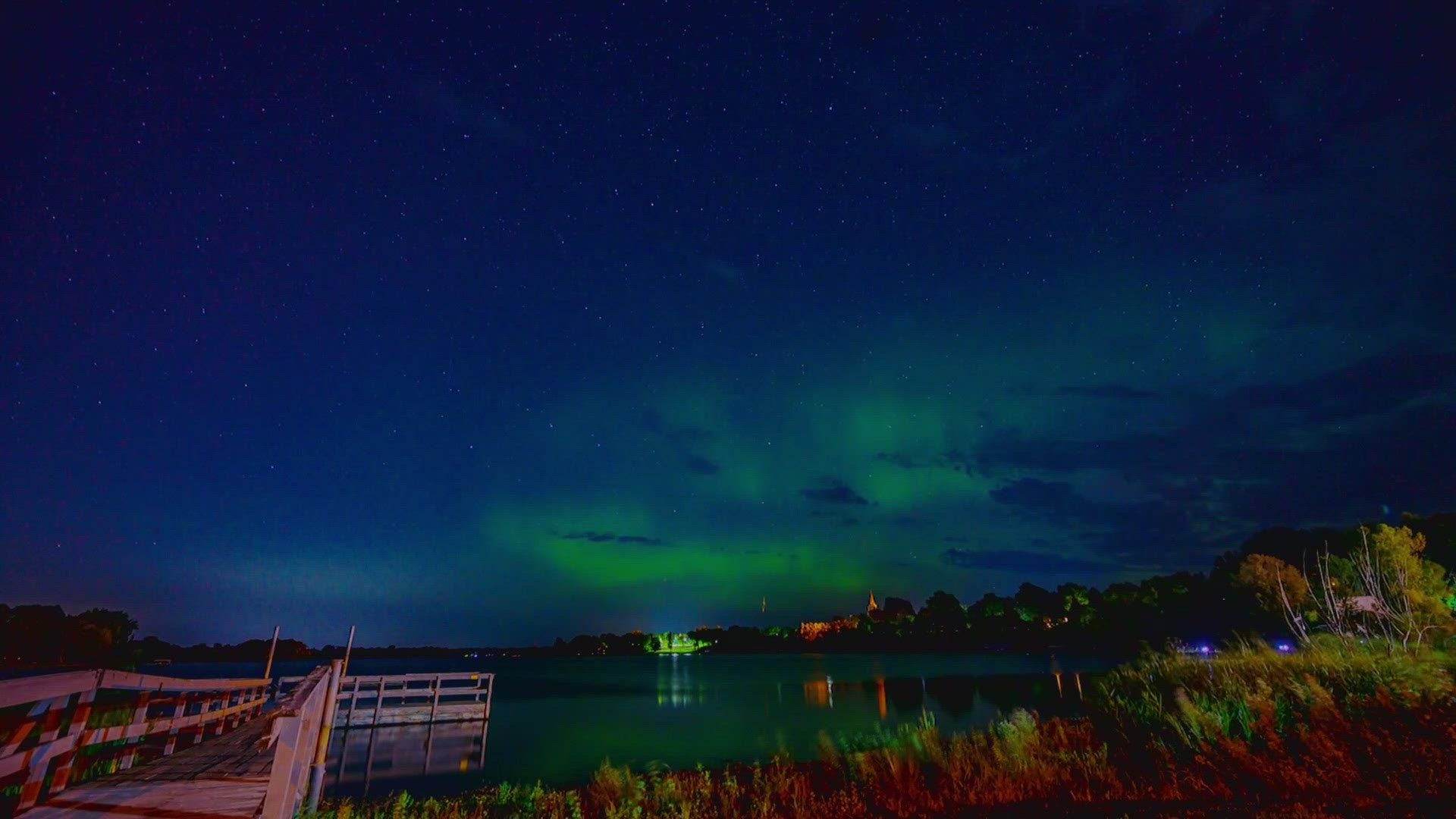WASHINGTON — An "extreme" solar storm brought glimpses of northern lights to the U.S. on Friday, with potentially more to come as well as possible disruptions to power and communications.
The National Oceanic and Atmospheric Administration issued a rare severe geomagnetic storm warning when a solar outburst reached Earth on Friday afternoon, hours sooner than anticipated. The effects were due to last through the weekend and possibly into next week.


NOAA said Friday evening G5 (extreme) conditions were observed just before 7 p.m. Eastern. G5 is the most severe level of geomagnetic storms, and the last time a storm of this magnitude was seen was in 2003.
NOAA said the sun produced strong solar flares beginning Wednesday, resulting in five outbursts of plasma capable of disrupting satellites in orbit and power grids here on Earth. Each eruption — known as a coronal mass ejection — can contain billions of tons of solar plasma. As particles hit the Earth they have the potential to generate northern lights, gracing watchers with ethereal curtains of multicolored light usually only seen in the far north.
NOAA is calling this an unusual event, pointing out that the flares seem to be associated with a sunspot that’s 16 times the diameter of Earth. An extreme geomagnetic storm in 2003 took out power in Sweden and damaged power transformers in South Africa.


According to the National Weather Service, much of the northern United States may be in line to see the northern lights this weekend, including states as far south as Alabama and California. Of course, that's all depending on the weather.
Geomagnetic activity predictions from NOAA indicate northern states near the border of Canada are much more likely to easily see visible displays of light.
The northern lights should appear as a faint greenish glow which may appear to dance as it gets more active. Occasionally, other colors such as pink or red, will also be visible.
This could also be the best chance to see the northern lights in these places for a while. It's rare for such a strong solar storm to hit the earth, and they're unpredictable, meaning it could be years before anything like this happens again — and it may be even longer before a solar storm peaks at night, which makes viewing the northern lights much easier.
Even when the storm is over, signals between GPS satellites and ground receivers could be scrambled or lost, according to NOAA, but outages shouldn't last long.
NASA said the storm posed no serious threat to the seven astronauts aboard the International Space Station. The biggest concern is the increased radiation levels, and the crew could move to a better shielded part of the station if necessary, NOAA said.
Increased radiation also could threaten some of NASA’s science satellites. Extremely sensitive instruments will be turned off, if necessary, to avoid damage, said Antti Pulkkinen, director of the space agency’s heliophysics science division.
Several sun-focused spacecraft are monitoring all the action.

